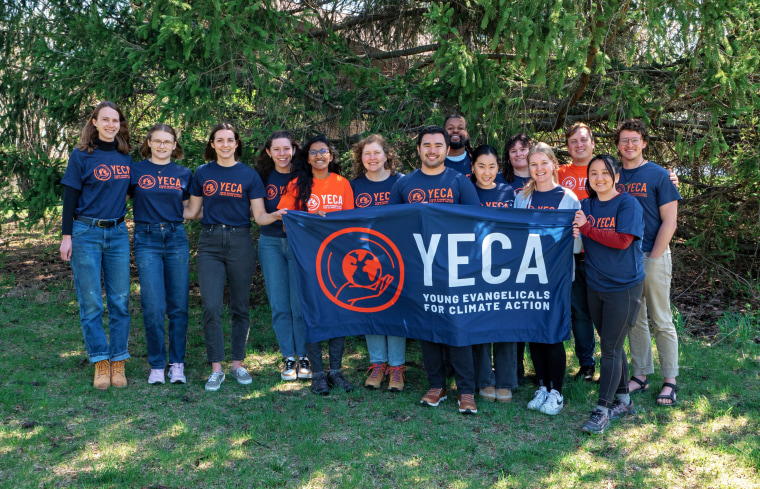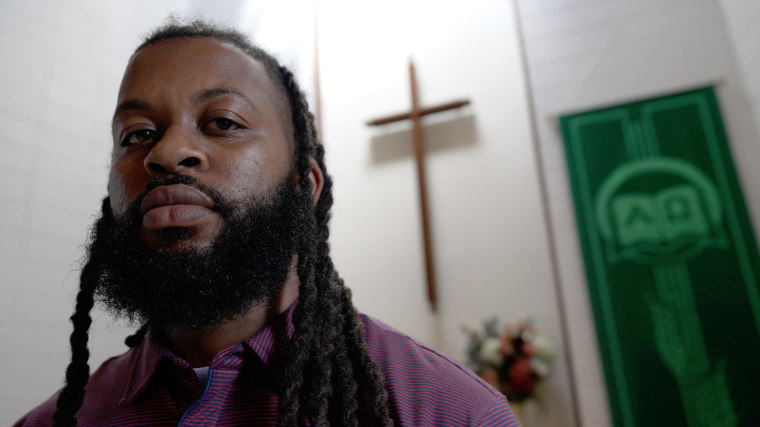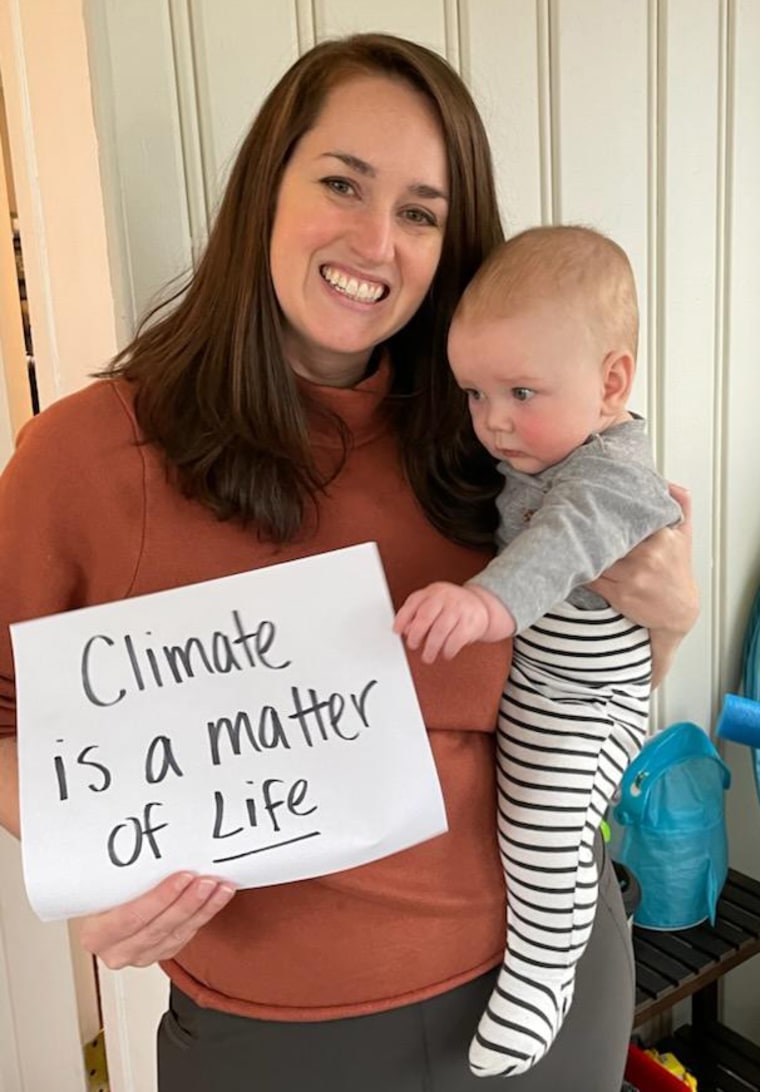The summary
- A group of young evangelical Christians plans to campaign at religious institutions to convince students to consider climate change at the ballot box.
- He is part of a small movement within the evangelical community to connect Christian values with climate action.
- The efforts come as Donald Trump continues to court evangelical voters by calling climate change a “scam.”
When evangelical student groups campaign for climate votes at their Christian universities later this month, they will have a slogan: “Love God, love your neighbor, vote for climate!”
It is the first such campaign organized in-person on campuses by the nonpartisan group Young Evangelicals for Climate Action since it launched in 2012.
The volunteers – members of chapters at six Christian universities – aim to build connections between communities affected by the climate crisis and the Christian duty to “love thy neighbor” and help those in need.
The initiative is part of a larger movement led by the Evangelical Environmental Network, an organization that lobbies for faith-based climate action.
Its members are a minority in their community: A 2022 survey by the Pew Research Center found that evangelical Christians were the most likely among U.S. religious groups to express skeptical views of human-caused climate change.
In the 2020 election, 84% of white evangelical Christians voted for Donald Trump, who has previously called climate change a “hoax,” contradicting decades of scientific consensus. As recently as last week, Trump falsely claimed that “the planet has gotten a little colder lately” and called climate change “one of the biggest hoaxes of all time” at a Sept. 29 rally.
White evangelical voters cast a third of winning votes for Trump in 2016, and a Pew Research poll released last month found that 82% said they would do so again this year.
However, Jessica Moerman, CEO of the Evangelical Environmental Network, is committed to convincing Christians to see climate change as a matter of love for the Earth that God created, as she describes it.
“As evangelicals, we have this biblical mandate to care for God’s creation,” said Moerman, who is also a pastor and climate scientist. “And in the 21st century, that means taking action on the climate.”
Moerman said he has noticed an increase in interest in climate issues from evangelicals who have experienced extreme weather. So his group is starting to focus more on making connections between climate change and increasingly powerful storms and wildfires, he said.

Young Evangelicals for Climate Action is a ministry of the Evangelical Environmental Network and its work extends beyond college campuses. Adam Hubert, a middle school science teacher at a religious school called Hope Academy GSO in Greensboro, North Carolina, is a member. She incorporates climate science into her middle school biology and environmental science classes.
This spring, the class took a trip to the Blue Ridge Mountains to learn how climate change may impact forests and wildlife.
Hubert said many of his students tell him that school is the only place where they talk about climate change.
“I hope my students leave my classroom with some sort of respect for the natural world,” she said. “So when they are 18 and go to the polls or talk to their neighbors, they might think about it.”

Most of Hope Academy’s 130 students come from low-income families of color. Hubert said climate denial rhetoric from some prominent evangelicals does not represent the attitudes of the school community.
“I think white evangelicals have this ability to deny or pretend that something doesn’t exist,” he said. “I think we see it with racial injustice. I think we’ve seen this during the pandemic. And we definitely see that with the climate crisis.”
Moerman sees climate denial among evangelical Christians as a product of misinformation.
“Unfortunately, it was my evangelical community that was a major target of this misinformation,” he said.
Some conservative evangelical politicians have fueled skepticism about climate change for years. Jim Inhofe, the late Republican senator from Oklahoma, presented a snowball on the Senate floor ten years ago as proof that “only God can change the climate.” And last year, former Arkansas governor Mike Huckabee published a Christian children’s book that refuted man-made global warming.
To combat such ideas, the Evangelical Environmental Network hosts webinars on the science of climate change and how faith connects to climate action. Volunteers run faith-based nature camps for children and facilitate listening sessions in Christian communities affected by the climate crisis.
The Pro-Life group Clean Energy’s landmark campaign frames the push to tackle air pollution as a way to protect unborn babies, given research showing pollution can increase the risk of preterm birth and low birth weight birth. A petition associated with the campaign has collected more than 2 million signatures.
The network also connects with pastors and preachers, providing guidance on how to incorporate climate discussion into sermons.
Caleb Haynes, pastor of a small church called Kaleo Nashville in Nashville, Tennessee, is among the network’s members. He believes it is a Christian duty to consider the climate when voting – and preaches accordingly.
“It’s 2024 and Christians are not the only ones talking about apocalyptic times,” he told his congregation during a Sunday morning service in July. “As glaciers melt and sea levels rise, and greed wants to run the show, God’s people must show up!”
Haynes does not endorse particular candidates, instead focusing on the links between Christian teachings and caring for the planet.
“Some pastors get caught up in talking about climate change, but for me it’s biblical faithfulness 101,” he said in an interview. “Our original sin here was to assume that we consume, as we want, whatever we want, from whatever tree in the garden we want, and that there would be no consequences.”
“We are talking about the future of life on Earth and the lives of millions of people,” he added.

Both Haynes and Moerman said they view climate change as a child care issue.
“As evangelicals, we are called to defend the life of every single child,” Moerman said. “And to really do that, we need to take the climate into account, because it is our children, both born and unborn, who are most affected by climate damage.”
Trump courted the evangelical vote in his campaign by speaking at Christian conferences, with some success: Trump voters were spotted at a March campaign rally in Ohio wearing clothing emblazoned with the slogan “Jesus is my Savior, Trump is the my president.” At a rally Trump held in Montana in August, several evangelical attendees said they viewed the failed assassination attempt on him as “divine intervention.”
Despite this, Moerman said, he still sees evangelicals as an important and untapped constituency in the fight to address climate change.
“We only activated a small portion of the audience,” he said. “To solve a problem as big as the climate, we need everyone.”
#Evangelical #environmentalists #push #climate #votes #election #nears #care #Gods #creation